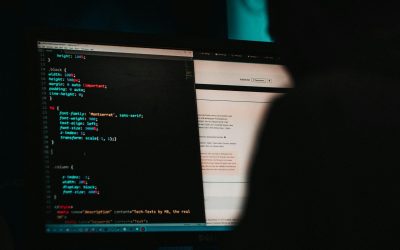The Future Possible: Where the World Is Taking Us!

Photo by Alessandro Oliverio
In the far future, there is the promise that the fruits of nanotechnology, artificial intelligence and robotics all converge. And from these coalescing, a brighter tomorrow will arrive. A world where no longer will people have to risk their lives needlessly doing back-breaking labor because robots will do it for them. A society where people will have incorporeal assistants and companions because artificial intelligence has progressed to the point of self-awareness. A reality where people are free of want and need because nanotechnology can create whatever it is that we desire.
Where the World Is Taking Us!
Although we may not see this future in our lifetimes, there is no doubt that such a world reshaped won’t be anything but a literal paradise here on earth. The issues of today will be a thing of the past in the future. Bodies made indestructible by small machinery. Cities managed efficiently by intelligent systems. Impossible tasks made possible through robots. That world is right there on the horizon.
These concepts of the imagination, once mere premises of many a science-fiction narrative, are gradually becoming actualities.
The Future Possible of Nanotechnology
The idea of subatomic or smaller machines is a staple in science fiction. Typically, they are told in narratives that they will be available once humanity has reached the stars and back. These atomic-sized technologies, or nanotechnology, are predicated on the creation of minuscule machines. These are as tiny as an atom or smaller and have the capacity to perform the mundane and the impossible at the molecular level. The main industries that would benefit most from this kind of innovation would be medicine, the material sciences, and ecological preservation.
- Through nanomachines, it would be easier to diagnose diseases and treat them with uncanny precision. Perennial dangers of the human body, such as cancers, would be easily dispatched since the size of nanomachines allows them better access to the body.
- Nanomachines are also beneficial to the discovery and creation of new and extraordinary materials or the conversion of commonplace materials to rarer stuff. The ability to rearrange atoms afforded by nanotechnology will change the world for the better!
The Future Possible: Artificial Intelligence

Photo by cottonbro studio
Ever since the first machine was realized, ideas have revolved around mimicking human capacity through machinery. That was the first inception of artificial intelligence (AI). Right now, what is commonly referred to as artificial intelligence is LLMs, or language learning models, which merely replicate language patterns—but the possibility of actual intelligence isn’t too far-fetched. If this ever happens, the world will be greatly changed.
With AI, large sections of society could operate autonomously. Their addition to implants could also serve people immensely, without speaking of the broader applications that artificial intelligence has.
Artificial intelligence would also be self-improving, meaning that the possibilities it could offer humanity are virtually limitless.
The Future Possible: Robotics

Photo by Alex Knight
If nanotechnology gives us possibilities that begin at the molecular level, robotics is the opposite. Out of the technologies presented in this article, robotics perhaps has the nearest finish line to actually kickstarting a revolution both in society and the way we interact with the world. Just imagine a world wherein tedious and repetitive tasks will no longer take up your time. How would our material needs be met when factories are entirely staffed by machinery that has the capacity to work at the macro level and the finer details? Complex tasks such as making clothes, medicine, houses, etc., would be much, much easier with robotics.
Then, there would be the leaps made in travel, both terrestrial and extraterrestrial. Traversing mountains and plumbing the depths of oceans would be simple tasks while the exploration of space could begin in earnest with actual human colonization of other planets and other star systems.
Considerations for the Future World
While the potential benefits of nanotechnology, AI, and robotics cannot be overstated, there are still significant hurdles to overcome.
Chief among them is the ethical considerations that come with such revolutionary technologies. Often when inventions are introduced into the world, its primary beneficiaries are small groups of people. If we are to take the steps to becoming a better civilization, we should ask ourselves if the fruits of human ingenuity should be kept to a few or shared to the whole of humanity.
These kinds of questions are what is asked in Angel of Mortality: Defender of Life, Creator of Chaos by David Witherington Stewart. The future is possible, but what steps do we take to make sure we all receive its bounty?

David Stewart
I'm David Witherington Stewart, a Florida-based author with a background in physics, aerospace, and software development. My works, including Angel of Mortality, blend science fiction with intricate themes. I draw inspiration from my 40-year aerospace career and personal experiences.
4 Comments
Trackbacks/Pingbacks
- Exploitation of Robotics: Looking Through the Future - […] to be interested in delving further into robotics, AI, and nanotechnology, a related article about the future possible is…
- Sentience of AI: The Possibility of Self-Aware Machines - David Stewart - […] the minds behind science fiction have a knack for prophesizing the future of technology. And given the trends now,…
Submit a Comment
How Hidden Data Drives Conspiracy Thrillers
Photo byMika Baumeister onUnsplash How hidden data drives conspiracy thrillers from the first page is simple: informa...
The Allure of Conspiracy in Suspense Novels
Photo byTarik Haiga onUnsplash Conspiracy in suspense novels grips readers because it never allows a story to remain ...
Top International Law Thrillers You Should Read
Photo by Sora Shimazaki Aninternational law thriller lives right on that razor-thin line where crime crashes into the...
A Deep Look Into Thriller Books Exploring Identity Theft
Photo by De an Sun on Unsplash If you’re drawn to stories that blur the lines between reality and deception, an ide...
Why Identity-Driven Suspense Novels Keep Readers Hooked
Photo byAngelo Casto on Unsplash Suspense novels keep readers hooked because they go straight for something intimate:...
Why High-Stakes Escape Thrillers Keep Us Reading All Night
Photo by Polina Escape thrillers keep us reading because danger focuses the mind faster than comfort ever does. The m...
Fictional Tales of the Witness Relocation Program
Photo by Bora Sözüer on Unsplash Tales of the witness relocation program often surprise readers because they reveal...
Thriller Novels About Witness Protection You Must Read
Photo by Jonathan Wells on Unsplash Thriller novels about witness protection pull readers into tense moments, hidden ...
Exploring Underground Crime Networks in Mystery Novels
Photo by Jez Timms on Unsplash The crime network in mystery novels shapes the danger that pulls you into every twist....
The Best Mafia Suspense Novel You Should Read
Photo by Artem Budaiev on Unsplash A strong mafia suspense novel pulls you into danger from the first line and keeps ...
Money Laundering in Fiction: How Novels Portray It
Photo by Nathan Franklin on Unsplash Money laundering in crime thrillers has long fascinated readers who enjoy storie...
The Dark World of Human Trafficking in a Crime Novel
Photo by David Valentine on Unsplash Human trafficking in suspense fiction often mirrors and mimics the real world’...













i don’t know if i can live to see where technology takes us, but i’m kinda enjoying our times right now.
if this were to happen, it’s probably going to be centuries in the future
Apparently, some basic human tasks are replaceable by robots
This makes me so excited about what the future holds.